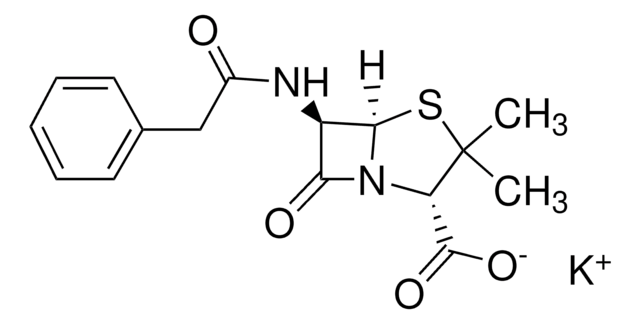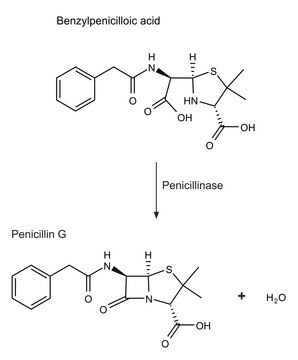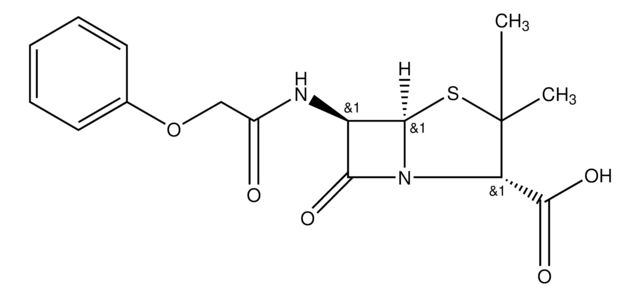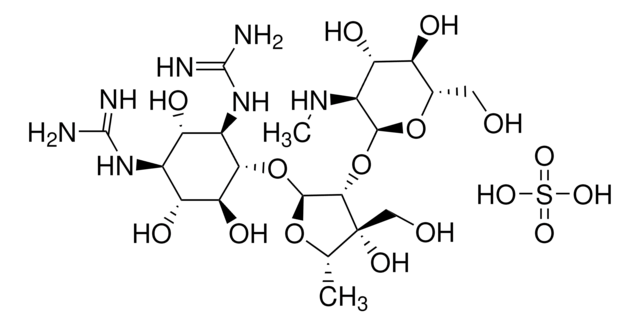B0900000
Benzylpenicillin sodium
European Pharmacopoeia (EP) Reference Standard
Sinónimos:
Penicillin G sodium salt, Benzylpenicillin sodium salt
About This Item
Productos recomendados
API family
penicillin & derivatives
manufacturer/tradename
EDQM
application(s)
pharmaceutical (small molecule)
format
neat
storage temp.
2-8°C
SMILES string
[Na+].[H][C@]12SC(C)(C)[C@@H](N1C(=O)[C@H]2NC(=O)Cc3ccccc3)C([O-])=O
InChI
1S/C16H18N2O4S.Na/c1-16(2)12(15(21)22)18-13(20)11(14(18)23-16)17-10(19)8-9-6-4-3-5-7-9;/h3-7,11-12,14H,8H2,1-2H3,(H,17,19)(H,21,22);/q;+1/p-1/t11-,12+,14-;/m1./s1
InChI key
FCPVYOBCFFNJFS-LQDWTQKMSA-M
¿Está buscando productos similares? Visita Guía de comparación de productos
General description
Application
Biochem/physiol Actions
Antimicrobial spectrum: This product is active against gram-positive and gram-negative bacteria.
Packaging
Other Notes
related product
signalword
Warning
hcodes
Hazard Classifications
Skin Sens. 1
Storage Class
11 - Combustible Solids
wgk_germany
WGK 3
Elija entre una de las versiones más recientes:
Certificados de análisis (COA)
It looks like we've run into a problem, but you can still download Certificates of Analysis from our Documentos section.
Si necesita más asistencia, póngase en contacto con Atención al cliente
¿Ya tiene este producto?
Encuentre la documentación para los productos que ha comprado recientemente en la Biblioteca de documentos.
Los clientes también vieron
Nuestro equipo de científicos tiene experiencia en todas las áreas de investigación: Ciencias de la vida, Ciencia de los materiales, Síntesis química, Cromatografía, Analítica y muchas otras.
Póngase en contacto con el Servicio técnico









